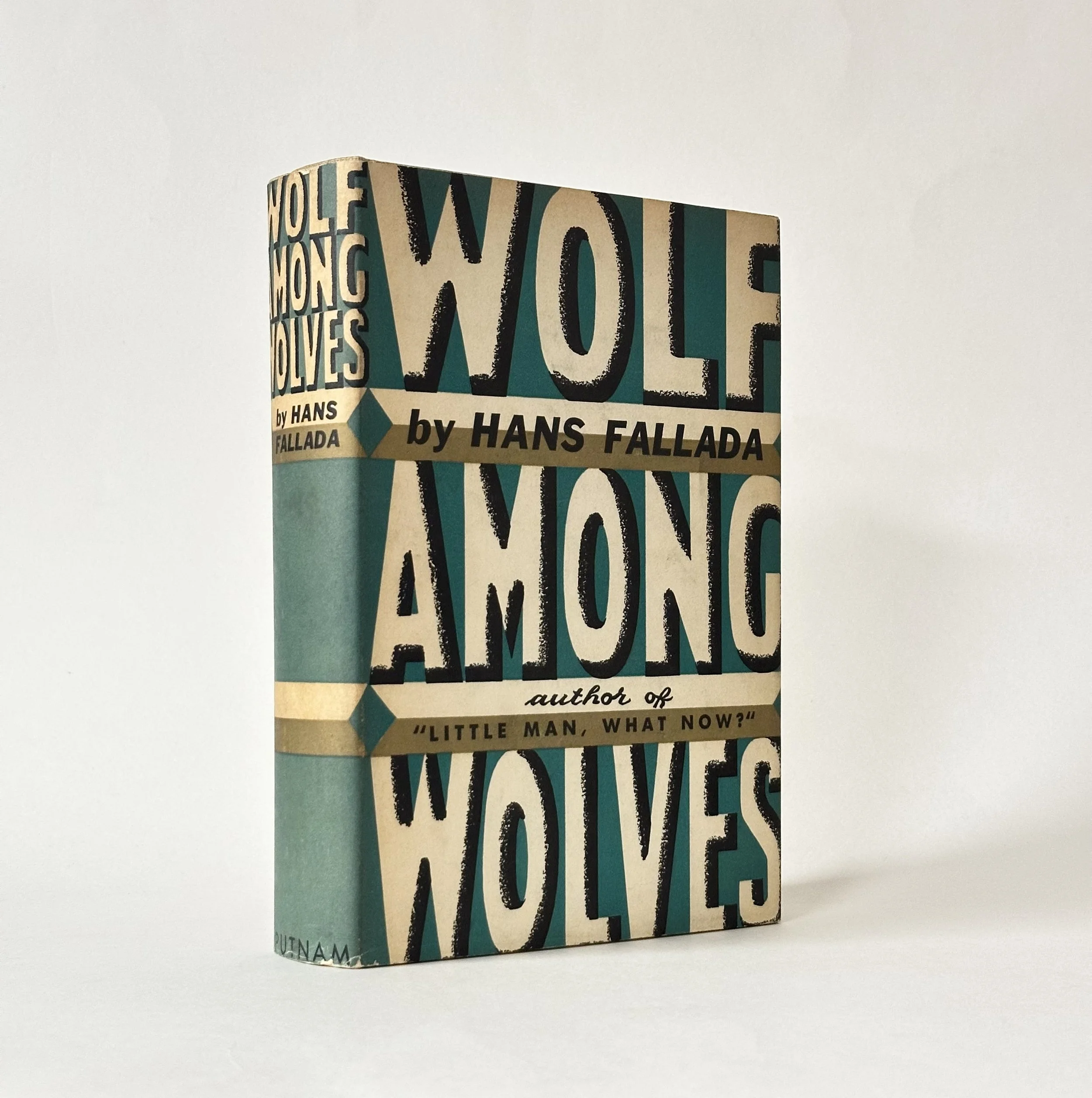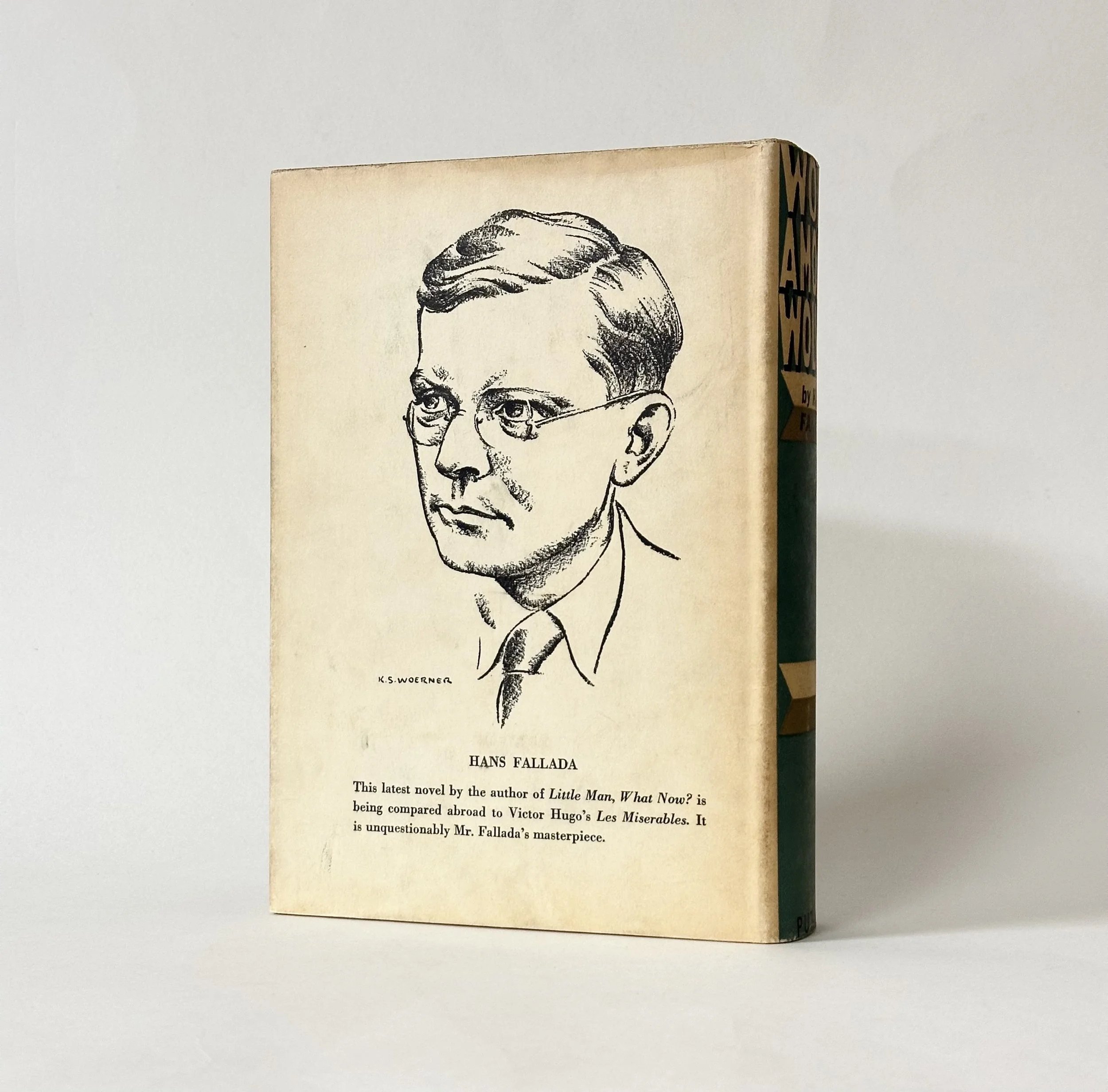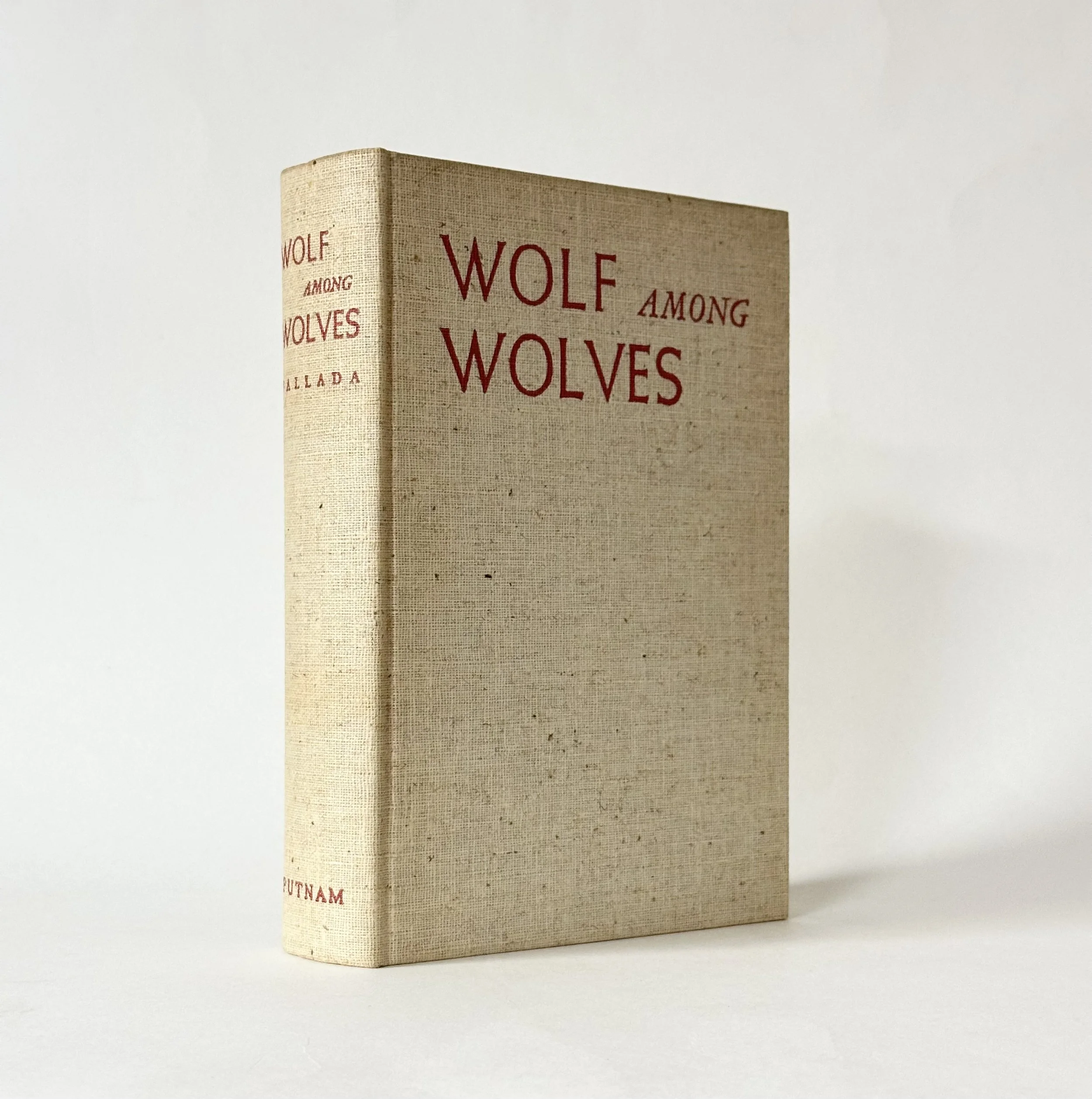 Image 1 of 3
Image 1 of 3

 Image 2 of 3
Image 2 of 3

 Image 3 of 3
Image 3 of 3




FALLADA, Hans. Wolf Among Wolves
FALLADA, Hans. Wolf Among Wolves. New York: G. P. Putnam’s Sons. 1938. Thick 8vo. First American edition. Publisher’s cream cloth lettered in red to the spine and upper board, in the striking typographic dust jacket. A near fine copy, the cloth clean and bright, the binding tight and square, the topstain bright. The contents clean and fine throughout, with faint stamp (not ex-library) to the rear endpaper. The dust jacket unclipped ($3.00) with all four corners neatly cut. Mild bumps and rubbing to the corners and tips, but a very bright and pleasing copy, uncommon as such.
Fallada’s grand interwar epic charting the monetary turmoil of the Weimar Republic from 1923 to its downfall, recreating an entire historical epoch. “On the first page the dollar is worth 414,000 marks; on the last page the miracle of the new stabilised mark has come to pass. In between, hell seethes, insanity grins and howls, the dervish dance of the period spins and whirls… distress and vice; misery and recklessness; the depravity of the old and the hunger of the young; the brazenly self-contained mask and the naked, anxious face behind it”. The publication marked a return to form for Fallada, and a return to his realistic New Objectivity style, i.e. glum, dreadful but never painful, and entirely without sentimentality. His American publishers reckoned it his best novel, likening it to Hugo’s Les Miserables. Reichsminister Joseph Goebbels took a fancy to it—since it denounced the Weimar Republic—and organised Fallada to write a state-sponsored novel. Such a flirtation had a dramatically negative effect on the now paranoidal Fallada, who had already endured a serious lifelong injury from childhood, a morphine addiction, the unfortunate bodged suicide pact with his best friend, not to mention the inexplicable and suffocating threat the Nazi regime was enforcing upon him. An excellent example of an important work.
FALLADA, Hans. Wolf Among Wolves. New York: G. P. Putnam’s Sons. 1938. Thick 8vo. First American edition. Publisher’s cream cloth lettered in red to the spine and upper board, in the striking typographic dust jacket. A near fine copy, the cloth clean and bright, the binding tight and square, the topstain bright. The contents clean and fine throughout, with faint stamp (not ex-library) to the rear endpaper. The dust jacket unclipped ($3.00) with all four corners neatly cut. Mild bumps and rubbing to the corners and tips, but a very bright and pleasing copy, uncommon as such.
Fallada’s grand interwar epic charting the monetary turmoil of the Weimar Republic from 1923 to its downfall, recreating an entire historical epoch. “On the first page the dollar is worth 414,000 marks; on the last page the miracle of the new stabilised mark has come to pass. In between, hell seethes, insanity grins and howls, the dervish dance of the period spins and whirls… distress and vice; misery and recklessness; the depravity of the old and the hunger of the young; the brazenly self-contained mask and the naked, anxious face behind it”. The publication marked a return to form for Fallada, and a return to his realistic New Objectivity style, i.e. glum, dreadful but never painful, and entirely without sentimentality. His American publishers reckoned it his best novel, likening it to Hugo’s Les Miserables. Reichsminister Joseph Goebbels took a fancy to it—since it denounced the Weimar Republic—and organised Fallada to write a state-sponsored novel. Such a flirtation had a dramatically negative effect on the now paranoidal Fallada, who had already endured a serious lifelong injury from childhood, a morphine addiction, the unfortunate bodged suicide pact with his best friend, not to mention the inexplicable and suffocating threat the Nazi regime was enforcing upon him. An excellent example of an important work.
